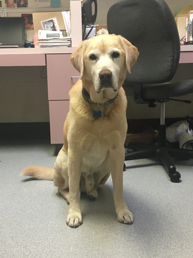
…skilled service…compassionate care
HAPPY NEW YEAR, 2020!
Here we are at the beginning of a new year. For those of you who were new to El Gato in 2019, we want to say, “welcome”, once again; and for those who are our continuing clients, a heartfelt, “thank you”, for trusting us with the care of your pets.
At the beginning of each year, we set goals and make plans for the upcoming year. Usually, they include striving to be healthier or exercise more, and/or eat right. We hope you include your pets in those plans. To start things off right for your pets, schedule a wellness exam for a nose to tail, ear to paw thorough external examination, along with a fecal test for giardia and parasites. Lab work, x-rays, or ultra sound can be scheduled, if recommended, to view any internal concerns and to establish a health baseline. This is also a great time to evaluate your pets’ heartworm prevention, vaccinations, de-worming. Don’t forget to discuss your pets’ dental health with the doctor and consider scheduling a dental cleaning for February’s dental month!
Since pets can’t verbally tell us they don’t feel well, this examination will give the doctors and you an opportunity to compare results from last year and determine what if any changes have occurred and to identify any potential problems before they become serious.
If 2020 finds you with senior pets in your family, talk with us about completing a wellness exam every six months. Generally, the American Veterinary Medical Association (AVMA), defines cats and small dogs as seniors at the age of seven years and larger breeds as geriatric at age six. We look forward to seeing you and your pet and learning of your 2020 goals and plans. Happy New Year!
FEBRUARY IS DENTAL MONTH!
 Don’t you just love it when you come home and your dog greets you with a big smile? According to the American Veterinary Dental College, periodontal disease is the most common clinical condition occurring in adult dogs and cats. As with people, it is entirely preventable. Gum disease, however, happens five time more often in dogs than people. It starts when food residue collects around the gumline and forms plaque. This plaque becomes tartar, and cannot be removed without special dental tools. the tartar causes gums to recede creating small pockets which is where bacteria grows and can cause bone tooth loss and eventually tooth damage / loss. This occurs below the gum line where it is unseen and can be very painful.
Don’t you just love it when you come home and your dog greets you with a big smile? According to the American Veterinary Dental College, periodontal disease is the most common clinical condition occurring in adult dogs and cats. As with people, it is entirely preventable. Gum disease, however, happens five time more often in dogs than people. It starts when food residue collects around the gumline and forms plaque. This plaque becomes tartar, and cannot be removed without special dental tools. the tartar causes gums to recede creating small pockets which is where bacteria grows and can cause bone tooth loss and eventually tooth damage / loss. This occurs below the gum line where it is unseen and can be very painful.
Over time, the bacteria enters the blood stream where it can affect the kidneys, heart, and liver. Untreated, periodontal disease can reduce the lifespan of your pet.
Our goal is to keep you and your pet together for as long as possible. Since your pet can’t tap you on the shoulder and tell you she has a toothache, please schedule a dental cleaning for your pet during February.
Dental Disease Warning Signs
• Lips may quiver
• Dis-colored teeth or plaque build up
• Bad breath
• Loose teeth
• Swollen or bleeding gums
• Pain in or around the mouth
• Chewing on only one side of the mouth
• Pawing at the mouth – may mean pain
• Sleeping a lot or decreased activity
• Irritability or Personality changes
• Reduced appetite or refusal to eat*
During your wellness visit, talk with the doctor about your pet’s teeth and proper dental care. At that time. you can schedule your pet’s dental cleaning. During February, you will receive 15% off an anesthetic dental cleaning. This does not include non-anesthetic cleaning and NO OTHER DISCOUNTS WILL APPLY. A pre-op exam of your pet is necessary if your pet has not been seen by the doctor in the month prior to the scheduled cleaning. After your pet’s cleaning, our Technicians and Doctors will teach you the best ways to care for your pet’s teeth at home. Toothbrushing with pet appropriate toothpaste is the single most effective thing you can do to help keep teeth and gums healthy and we can teach you how to do it. For additional guidance on toothbrushing, go to these videos: www.youtube.com/watch?v=PsNlLLSBWLU#action=share or www.youtube.com/watch?v=d617Fzwydlk#action=share.
* Pets may still eat while in pain. This is a natural instinct so they won’t appear weak and/or vulnerable.
ALERT! CANINE DISTEMPER IN PINNACLES NATIONAL PARK, CA!
Recently, the Sacramento Bee Newspaper reported that Rangers at Pinnacles National Park identified a gray fox that tested positive for canine distemper; a highly contagious and serious disease. This disease is spread through airborne exposure, fecal oral contamination and can also be transmitted by shared food and water bowls. Canine distemper can affect the respiratory tract, gastro-intestinal tract, central nervous system, and urinary / genital tract. This is an all-around nasty disease. Be sure you have protected your pet with vaccinations and avoid any gaps in the immunization schedule. There is no cure for canine distemper so prevention is the answer. If you are concerned about potential immunization gaps, please contact us.
NATIONAL PET TRAVEL SAFETY DAY – JAN 2 (good to practice every day!)
Most dogs enjoy a trip in the car; cats, not so much. As you would with a small child, however please remember to secure your pet safely in the car. No one ever plans for an accident or incident so prepare your pets to travel. Here are a few tips to help you keep your pets safe while traveling. You may have others.
- Secure your pet, dogs or cats, with a proper safety harness or crate that is anchored to the seat
- Never let your pet hang its head out of the window. What if your swerve suddenly or if debris hits the pet in the face or your dog decides to chase another dog or squirrel?
- Don’t let your dog ride in your lap or in the front seat. Your pet can be killed or injured if the air bags deploy or thrown from the vehicle in the event of a roll over.
- Be sure your dog is microchipped and you have notified the microchip company with your pet’s information.
- Carry your pet’s vaccination record and a picture of your pet shown with you and/or your family.
- Carry a pet first aid kit, and if traveling long distances, identify emergency veterinarians along your route.
- Be sure to have your pet’s food and water with you and NEVER leave your pet alone in the car, especially in hot weather.
- If you are planning to travel, check with us any time for travel health certificates you might need.
Kodi’s Kolumn! by Kodiak (Kodi) Bibb – Head K-9 in charge! (That’s me on the right!)
WELCOME KAYLEEN!
Join us in welcoming a new member of the El Gato Team, Front Receptionist, Kayleen. She will join us full-time in February. Kayleen lives in Los Gatos and has been in the Veterinary field for about 4 years first in General Practice then in Emergency and Specialty practices. She has 5 animals, 3 cats and 2 dogs. When not working, she loves to hike, take dance classes and spending time with her Fiance, Friends and Family. Welcome aboard, Kayleen!

HAPPY VALENTINE’S DAY!
 Hug all those you love on Valentine’s Day (as well as every day!) If you celebrate Valentine’s Day by giving chocolate to friends and family, please remember to avoid giving it to you pet. Chocolate contains theobromine which is toxic to pets. Consuming large amounts can produce vomiting and diarrhea muscle tremors, seizures, irregular heartbeat, collapse and / or death. The seriousness of the problem depends on the type and amount of chocolate consumed as well as the size of the dog or cat and length of time after consumption. In addition to theobromine, xylitol, a sweetener found in food products and other goods, can be dangerous. It causes low blood sugar and liver failure. Symptoms can develop in ½ – 1 hour or up to 24 hours and are very serious for your pet. If you suspect your pet has eaten chocolate or xylitol, contact your vet immediately or take your pet to the emergency hospital.
Hug all those you love on Valentine’s Day (as well as every day!) If you celebrate Valentine’s Day by giving chocolate to friends and family, please remember to avoid giving it to you pet. Chocolate contains theobromine which is toxic to pets. Consuming large amounts can produce vomiting and diarrhea muscle tremors, seizures, irregular heartbeat, collapse and / or death. The seriousness of the problem depends on the type and amount of chocolate consumed as well as the size of the dog or cat and length of time after consumption. In addition to theobromine, xylitol, a sweetener found in food products and other goods, can be dangerous. It causes low blood sugar and liver failure. Symptoms can develop in ½ – 1 hour or up to 24 hours and are very serious for your pet. If you suspect your pet has eaten chocolate or xylitol, contact your vet immediately or take your pet to the emergency hospital.
WINTER FUN WITH YOUR PET!
I speak from experience when I say I love to get outside and play in the snow. Of course, I’m a Labrador and we all know how much we like snow. I think most dogs do; well my two Chihuahua housemates would disagree with me, but they don’t know what fun is!

Keeping active in the winter is a challenge for all of us if we want to keep our handsome figures under control. Along with playing, there are some things I want you to consider when you take your furry friends out to play in the white stuff. Just as you worry about keeping us safe in hot weather, cold weather has its challenges too. Here are a few from our friends at AVMA and The Whole Dog Journal:
Hypothermia and frostbite: Running around and playing in the snow is fun, but if we get wet or are not used to very cold weather, we can suffer. If a dog’s body temperature falls below 95F, (normal is 101), we can fall into unconsciousness and even a coma. Usually, it starts with strong shivering and shaking followed by no shivering, but we get very lethargic and sleepy or weak. Take us inside and re-warm slowly. Check my paws for frostbite or blisters. Be sure to check between toes to remove any ice which may have gathered.
Drowning or falling through ice: If you are unsure of the safety of a frozen pond or river, don’t go on it and certainly don’t let your pet venture out. Falling into frigid water can certainly cause shock and may lead to drowning of the dog and the human who tries to help. Stay safe.
Anti-freeze poisoning: Antifreeze, ethylene glycol, tastes sweet to dogs and cats, and ingesting just a bit can be deadly. Even the so called “safer”, propylene glycol, versions are as deadly, just not as tasty. Ingestion of ethylene glycol is severly toxic and can lead to death. Propylene glycol can affect liver and kidneys, leading to depression, wobbliness, seizures, and death. If you think your pet has had even a bit of antifreeze, please go to the vet immediately.
I want us all to have fun in the snow, then go inside and snuggle safely by a warm fire. Sounds good to me and I know the Chihuahas will be there ahead of me.
IT SNOWED WHERE??!!
Las Vegas, NV
Antisrabe, Madagascar
Houston, TX
Tallahassee, FLA
Los Angeles, CA
Charleston, SC

